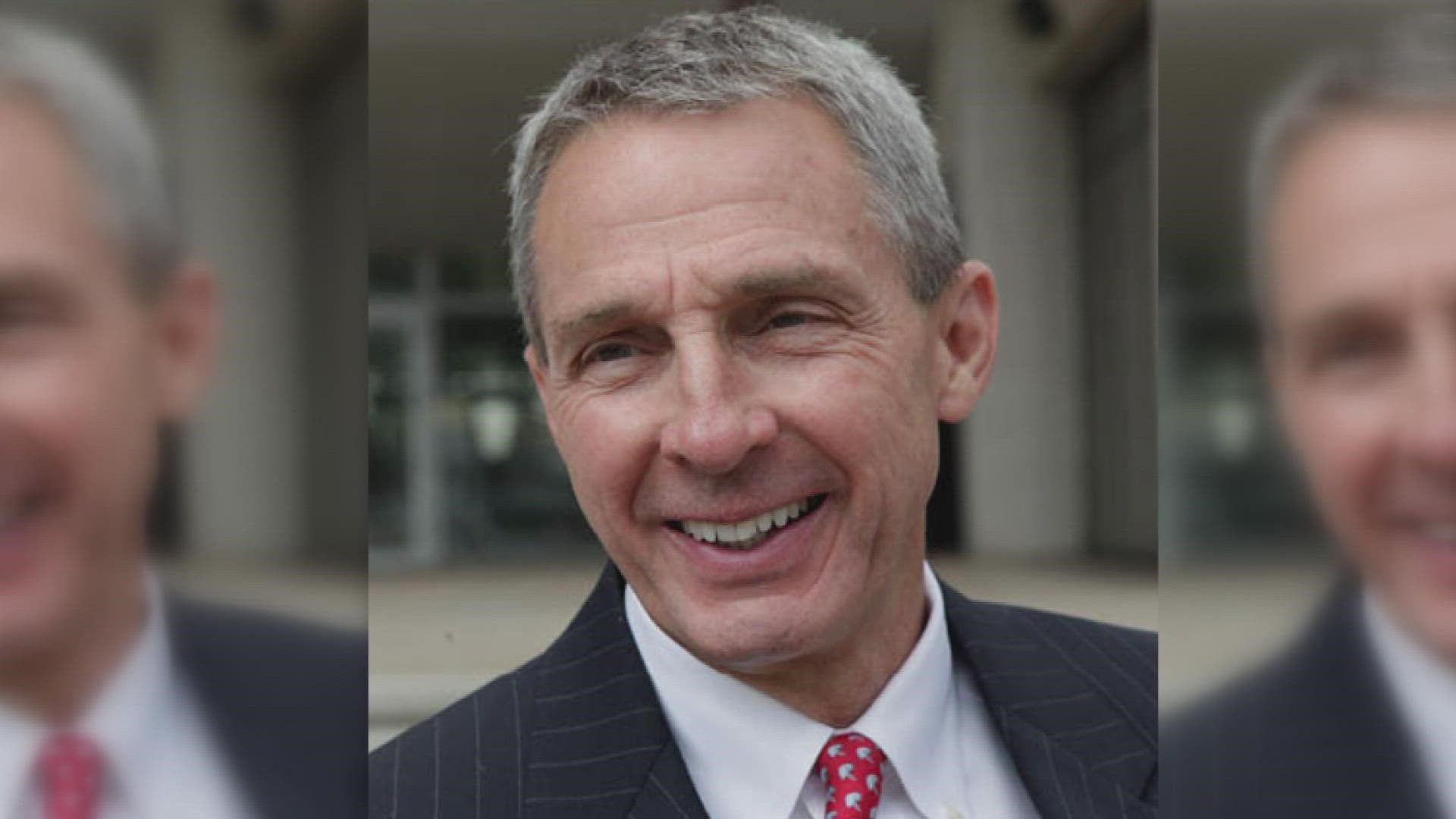NEW ORLEANS — First NBC Bank founder and former bank president Ashton Ryan got to lay out the contours of his defense for jurors in federal court Tuesday, as a massive bank fraud and conspiracy trial expected to last about a month began with opening statements.
Ryan’s defense attorney, Eddie Castaing, argued his client started First NBC in 2006 to help his community rebuild from the devastation of Hurricane Katrina and, while he may have made some bad loans to help people and businesses recover, he did so in good faith and never with any intent to defraud the bank he ran and created.
“There will not be one shred of evidence that he intended to harm the bank. Everything Ashton Ryan did was to help the bank, its borrowers, its board,” Castaing said.
First NBC’s spectacular $1 billion collapse in 2017 forced federal insurance to cover customers’ losses and cost the bank’s public stockholders millions. The government alleges Ryan and others conspired to give more than $263 million in bad loans to a group of just six borrowers.
The charges against Ryan are built on guilty pleas from those six borrowers, plus the admissions of two former bank officials who were initially charged as co-conspirators with Ryan. The government says those core borrowers -- Gary Gibbs, Kenneth Charity, Arvind “Mike” Vira, Jeffrey Dunlap, Warren Treme and Gregory St. Angelo – are ready to testify that Ryan helped them lie about their finances to cover up overdrafts that would have reflected badly on the bank’s bottom line.
But Castaing noted that federal investigators who reviewed the bank’s finances before the collapse wrote about Ryan’s motivation in making bad loans and determined it was not to hurt the bank.
“In his mind, he was making loans to save the city,” Castaing quoted from an FDIC report.
During cross-examination of a witness, Castaing noted that Ryan lost $20 million in stock options when the bank failed.
"He lost it all," Castaing said. "There was no golden parachute. He probably lost more than anyone else in the failure of the bank."
Assistant U.S. Attorney Matthew Payne started by trying to head off the defense’s argument that Ryan simply made risky loans out of the goodness of his heart.
“This case is not about bad banking, it’s not about risky banking, it’s about outright fraud,” Payne said.
Payne also said Ryan’s former co-defendants, chief credit officer Bill Burnell and executive vice president and loan officer Brad Calloway, are ready to testify that they helped Ryan approve and cover up the bad loans to keep justifying their high salaries. St. Angelo, who was a borrower, was also general counsel for the bank, and Payne said St. Angelo would testify that he helped Ryan defraud the bank in both roles.
But Castaing said those government witnesses were now turning on Ryan to save themselves.
“The borrowers lied on their bank applications, lied to bank officers, not just Ashton Ryan,” Castaing said. “They got caught. So, what do they do? They hired lawyers and made plea bargains, but they couldn’t do that without another lie, and that was against Ashton Ryan.”
It was the first detailed response Ryan has been able to give since a federal grand jury indicted him in July 2020. He faces more than 40 counts, including a count of conspiracy to commit bank fraud, 34 counts of bank fraud and eight counts of making false bank entries.
Federal prosecutors later added charges against a former First NBC loan officer, Fred Beebe, for the conspiracy count, three counts of bank fraud and three counts of filing false bank reports on loan applications. Specifically, Beebe filed reports on businessman Warren Treme’s loan applications. Treme was partners with Ryan in a residential development in Mandeville called Wadsworth Estates.
Beebe’s defense attorney, Sara Johnson, used her opening statement to portray Beebe as an affable but low-level loan officer who inherited Treme’s loans from another bank official when he started working at First NBC and didn’t even have the authority to approve or disapprove the loans.
“He took no kickbacks, no side deals, he didn’t take a cut, he didn’t self-deal,” Johnson said. “Mr. Beebe did his job, nothing more.”
Johnson also pointed out that Beebe recorded other bank officials when he suspected something was wrong and brought those recordings to the FBI and FDIC.
“These are not the actions of a fraudster,” she told the jury.
In a case involving highly technical financial matters and 10.5 million documents, Tuesday’s opening statements were a chance for the government and the two defendants to connect with jurors and preview the next three to five weeks of testimony in plain language.
The first witness took the stand Tuesday afternoon. It was Carl Chaney, a banker who was hired in February 2017 to take over from Ryan as First NBC's president and CEO. He testified that he found the bank in a $400 million hole because of a spate of bad loans. Chaney said he moved Ryan out of the central office to a branch in Kenner and directed Ryan to stop dealing with borrowers.
Within two months, Chaney said it became clear that the bank had negative capital and the bank would have to file a public report to stockholders. But before that could happen, FDIC officials walked into First NBC offices on April 30, 2017, seized the bank's assets and ordered it shut down.
► Get breaking news from your neighborhood delivered directly to you by downloading the new FREE WWL-TV News app now in the IOS App Store or Google Play.

